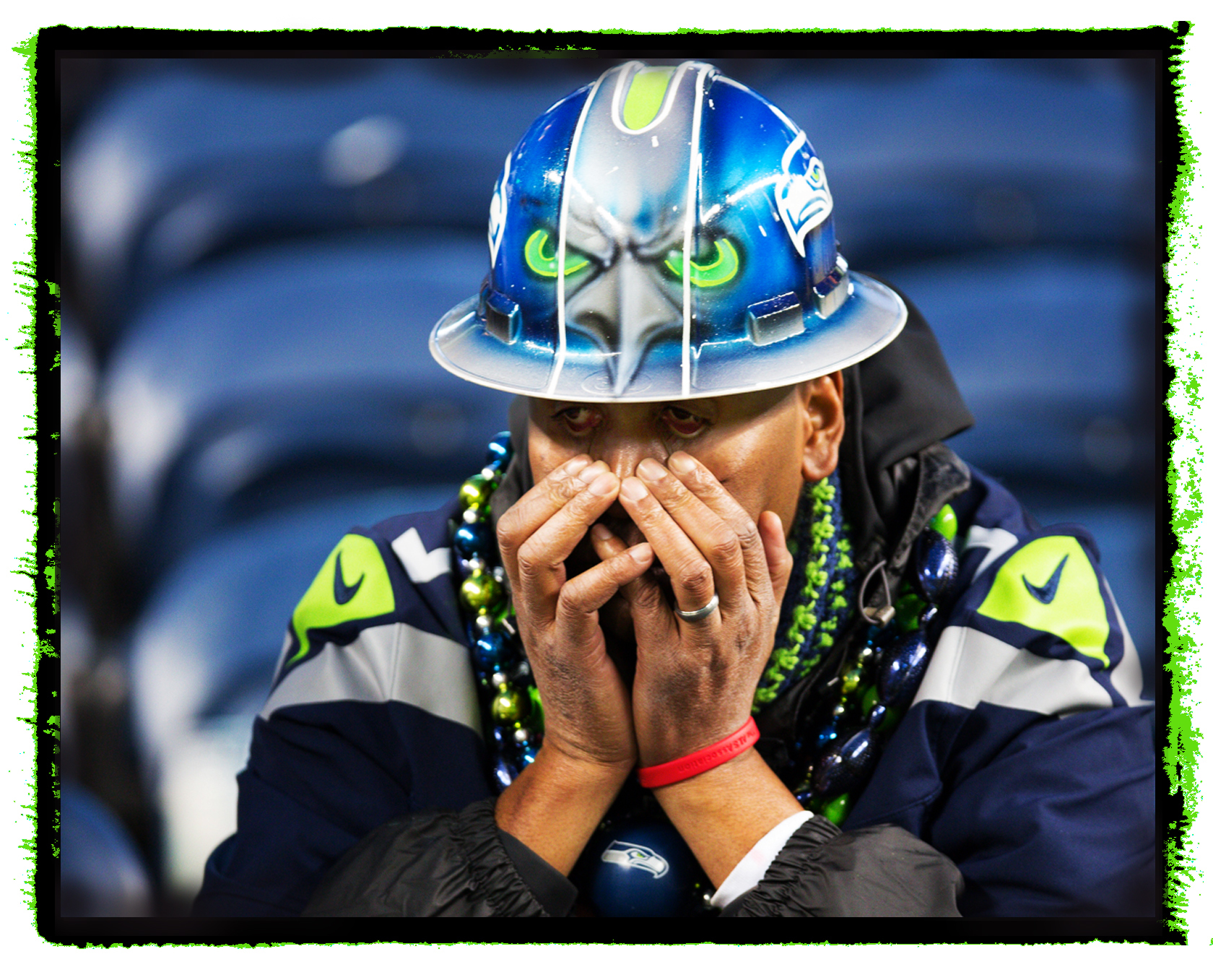Before hopping on the phone with a Seattle reporter late last month, former Seahawks quarterback Stan Gelbaugh had been chatting with quarterback coach Larry Kennan, whom Gelbaugh had followed to the Seattle Seahawks organization in 1992.
Asked by the reporter whether Gelbaugh had mentioned to Kennan that he’d be giving an interview later that day about those ‘92 Hawks, Gelbaugh gives a definite “No.”
“I didn’t want to ruin his day,” Gelbaugh deadpans in his slight southern accent.
Based on winning percentage, the 1992 Seahawks were most likely the worst football team this city has ever seen, and it was undoubtedly the worst offense to ever take the field under the Seahawks banner. But this week, as we stand in awe of the best Seahawks team ever, it’s worthwhile to look back at the worst, if for no other reason than to better appreciate how difficult (and wonderful) it is to be so good.
The stats from 1992 are jaw-dropping: The offense was shut out twice, played seven games without scoring a touchdown, and averaged only 8.8 points per game. Their 140 total points remain the fewest scored by any team since the start of the 16-game season in 1977, putting them below the winless 0-16 2008 Detroit Lions, among other legendarily terrible football teams. (By comparison, the 2013 Seahawks surpassed 140 points in just five games.) Despite having a strong defense that featured Defensive Player of the Year Cortez Kennedy, the ’92 Seahawks mustered only two wins the entire season.
By the end of the season, Seattle Times sports reporters and editors were delivering brutal one-two punches in their headlines and lead sentences summing up the games. “Just Wait Until Next Season” read the headline of the December 21 game wrap, whose opening paragraph festively speculated: “All that Seahawks fans might want for Christmas is an end to this lump-of-coal season.”
The headline a week later: “The Nightmare Is Over.” Lead: “All you Seahawks fans who spent the season hiding in closets can come out now. It’s over.”
Following that final home loss, a then-strapping Steve Kelly noted in his column that most players “dressed quickly, as if leaving the Kingdome in a rush would ease the pain of this season’s two-win disaster.”
Gelbaugh says a lot of the team’s struggles that year can be pinned on the huge number of injuries suffered and a lack of depth to cover for them. “We had guys coming off the street and starting on the offensive line,” he recalls.
When Gelbaugh came on board, he says he was told explicitly that he wouldn’t take a snap that year. His job was to hold a clipboard, not a football.
But in short order, both starting quarterback Kelly Stouffer and backup Dan McGwire went down with injuries. Gelbaugh was suddenly the man.
The Hawks’ December 21 game against the Denver Broncos—the one that led the Times to compare the season to a lump of coal—is a perfect example of how things went that year. While the defense held John Elway’s Broncos to 10 points, the offense could only muster two field goals. At the end of the first half, the Seahawks had 56 yards of offense, a stat dinged by the fact that their total passing yardage stood at -7. In the second half, when the Hawks were threatening to take the lead with a touchdown, running back Chris Warren fumbled inside the 20-yard line. After the game, Gelbaugh glumly reasoned to the press that while Warren had committed a critical fumble, at least he did it when the Seahawks had nothing to play for.
There were brief moments of magic for the team. Stouffer’s first game back from his shoulder injury was a Monday-night game at the Kingdome, again against the Elway-less Broncos, with whom the Hawks then shared a division, the AFC West. But Stouffer struggled, and in the fourth quarter Gelbaugh was put in. In less than one quarter of work, he threw for 164 yards and a touchdown to tie the game and force the Broncos into overtime where the Seahawks won in front of a thrilled, and shocked, hometown crowd.
As bad as things got, Gelbaugh says, Seattle never abandoned the team.
“The fans were always great. Even that year, they were supportive.” he says. “By the end, they booed us. But I’ll be honest: We deserved it.”
news@seattleweekly.com
Read the rest of Seattle Weekly’s collection of stories and essays inspired by this year’s Seahawks team here.




